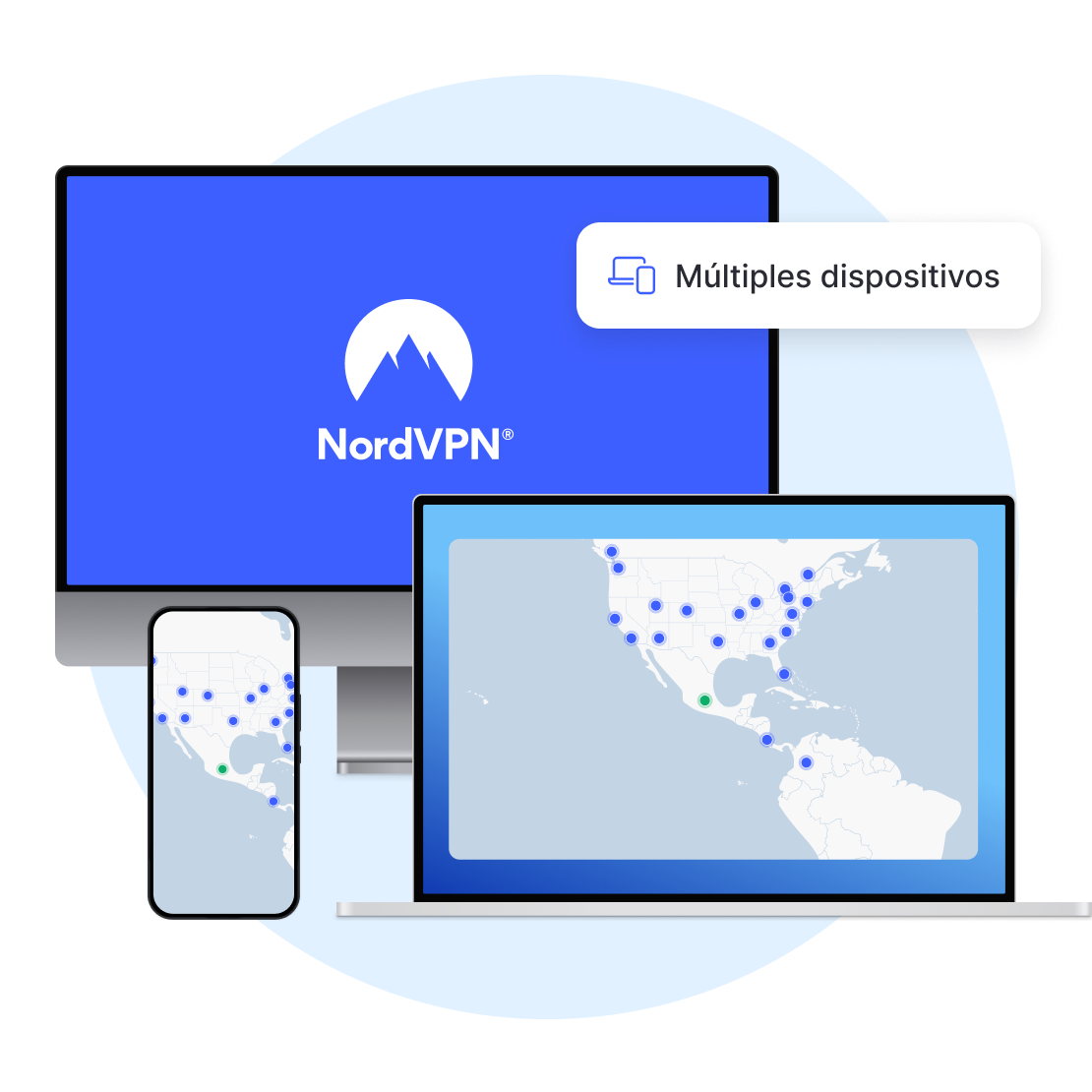·
Cambiar IP: cómo proteger tu privacidad online
Mejora tu privacidad ocultando tu dirección IP.
Mantén tu información personal segura.
Evita los ataques basados en IP.
Cómo ocultar tu dirección IP
Todos los dispositivos conectados a internet, desde tu smartphone hasta tu impresora, cuentan con una dirección IP para comunicarse con las páginas web y otros dispositivos. Tu dirección IP se puede usar para rastrear tu actividad online y tu ubicación. Por eso, ocultar tu identidad digital es una buena idea para mantenerte más seguro y con mayor privacidad online.
Para cambiar tu dirección IP, sueles necesitar herramientas externas, como servidores proxy o el navegador Tor. La forma más segura y rápida de ocultar tu dirección IP es utilizar una VPN (red privada virtual); por ejemplo, NordVPN puede cambiar tu dirección IP instantáneamente y proteger tu actividad online para que tu ISP (proveedor de servicios de internet) no pueda rastrear tu historial de navegación.
Protege tu dirección IP en 3 pasos
Cuando hayas descargado la app de NordVPN, sigue estos tres pasos para cambiar tu dirección IP:
1. Abre NordVPN
Inicia sesión en la app de NordVPN en tu dispositivo.
2. Escoge una suscripción
Elige una suscripción mensual o anual e inicia sesión.
3. ¡Conéctate!
Selecciona “Proteger conexión” para mantener tu dirección IP segura al instante.
Distintas formas de ocultar tu dirección IP
Oculta tu dirección IP con una VPN
Una VPN protege tu dirección IP y cifra tu actividad online para que obtengas mayor privacidad y seguridad. Te asigna una nueva dirección IP conectándote a un servidor VPN cifrado y privado, en lugar de los que te ofrece tu proveedor de internet. Esto significa que tu actividad en internet no puede ser rastreada, almacenada o utilizada por terceros.
Pros y contras de las diferentes maneras de cambiar tu dirección IP
Pros
Protege tu dirección IP y ubicación virtual al instante
Cifra tus datos para mayor privacidad y seguridad
Te permite acceder a tu contenido local de manera segura mientras viajas
Evita la limitación del ancho de banda en función de la actividad
Contras
Las VPN confiables cobran una tarifa de suscripción
Algunas páginas web bloquean el acceso de usuarios VPN
Cuatro razones para proteger tu dirección IP
Tal vez te preguntes por qué necesitas proteger tu dirección IP. Estas son las razones principales:
Mantener la privacidad de tu ubicación virtual
Si deseas evitar que páginas web y terceros conozcan tu ubicación virtual, ocultar tu dirección IP es la solución perfecta.
Libertad online
Utilizar una dirección IP diferente te permite evitar diversas medidas de censura y vigilancia.
Una experiencia online mejorada
Ocultar tu dirección IP impide que tu proveedor de internet rastree tu actividad online y regule tu velocidad de internet en función de lo que estés haciendo. Recuerda, cuando usas el modo incógnito, las compañías pueden seguir rastreando tu información confidencial.
Privacidad online
Protege tu actividad online, incluyendo las páginas web que visitas, de tu proveedor de internet y de terceros para disfrutar de privacidad en internet.
Con NordVPN, ningún tercero podrá descifrar tus datos online ilegibles para otros
Navega por internet de forma privada y segura, con la protección de un cifrado de última generación.
No disponible
No disponible
No disponible
¿Por qué elegir NordVPN para proteger tu dirección IP?
La mejor forma de proteger tu dirección IP y ocultar tu actividad en internet es cifrar tu conexión con NordVPN.
Máxima protección en todos tus dispositivos, incluidos los routers domésticos
Conexión simultánea en un máximo de 10 dispositivos
La protección contra amenazas Pro™ te protege contra el malware, los rastreadores y los anuncios
Usa la Red Mesh para conectarte con otros dispositivos y compartir archivos o jugar de forma segura
Las funciones de VPN adicionales para seguridad y privacidad
